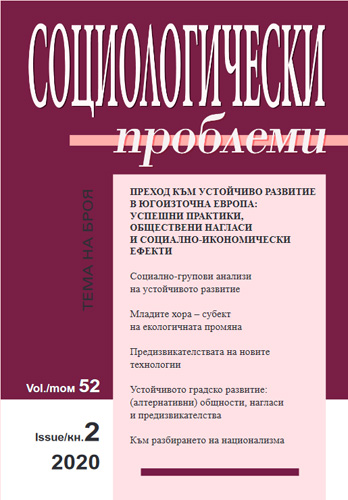Подоходна стратификация и нейното значение за постигане на целите на устойчиво развитие
Income Stratification in Relation to Sustainable Development Goals
Author(s): Rumiana Stoilova, Kaloyan Valentinov HaralampievSubject(s): Social Sciences, Sociology, Social development, Social differentiation, Economic development
Published by: Институт по философия и социология при БАН
Keywords: stratification; income inequalitie; sustainable development; attitudes towards environment protection; digital divide
Summary/Abstract: This article analyzes the stratified attitudes of the low, middle and high income strata related to the goals of sustainable development, which are a component of the vision of a justice, digital and green society. The study focuses on attitudes towards poverty reduction, the principles of justice income distribution and the importance of environmental protection. The use of the Internet has been studied as an objective measure of digital divide, the reduction of which is part of the technological change that is inclusive and of benefit for everyone. A comparison was made between three European countries – Bulgaria, the Czech Republic and Hungary. Data from the European Social Survey (2018) were used, correlation analyzes and logistic regression was applied. Conclusions have been drawn on the consensus on the need for support for the poor and for people in need by the state. In terms of understanding of the justice of income distribution, the support of all social strata is for distribution according to labour participation. In Bulgaria, support for environmental protection is greater than in Hungary and there is no difference with the attitudes in Czech Republic. There are significant differences between the income strata in terms of everyday Internet use. The digital divide is significant in the three compared countries. In this respect, the differences between poor, middle and rich are very significant and are a serious barrier to digital change, which is accessible and to the benefit of the different social groups.
Journal: Социологически проблеми
- Issue Year: 52/2020
- Issue No: 2
- Page Range: 385-408
- Page Count: 24
- Language: Bulgarian
- Content File-PDF

